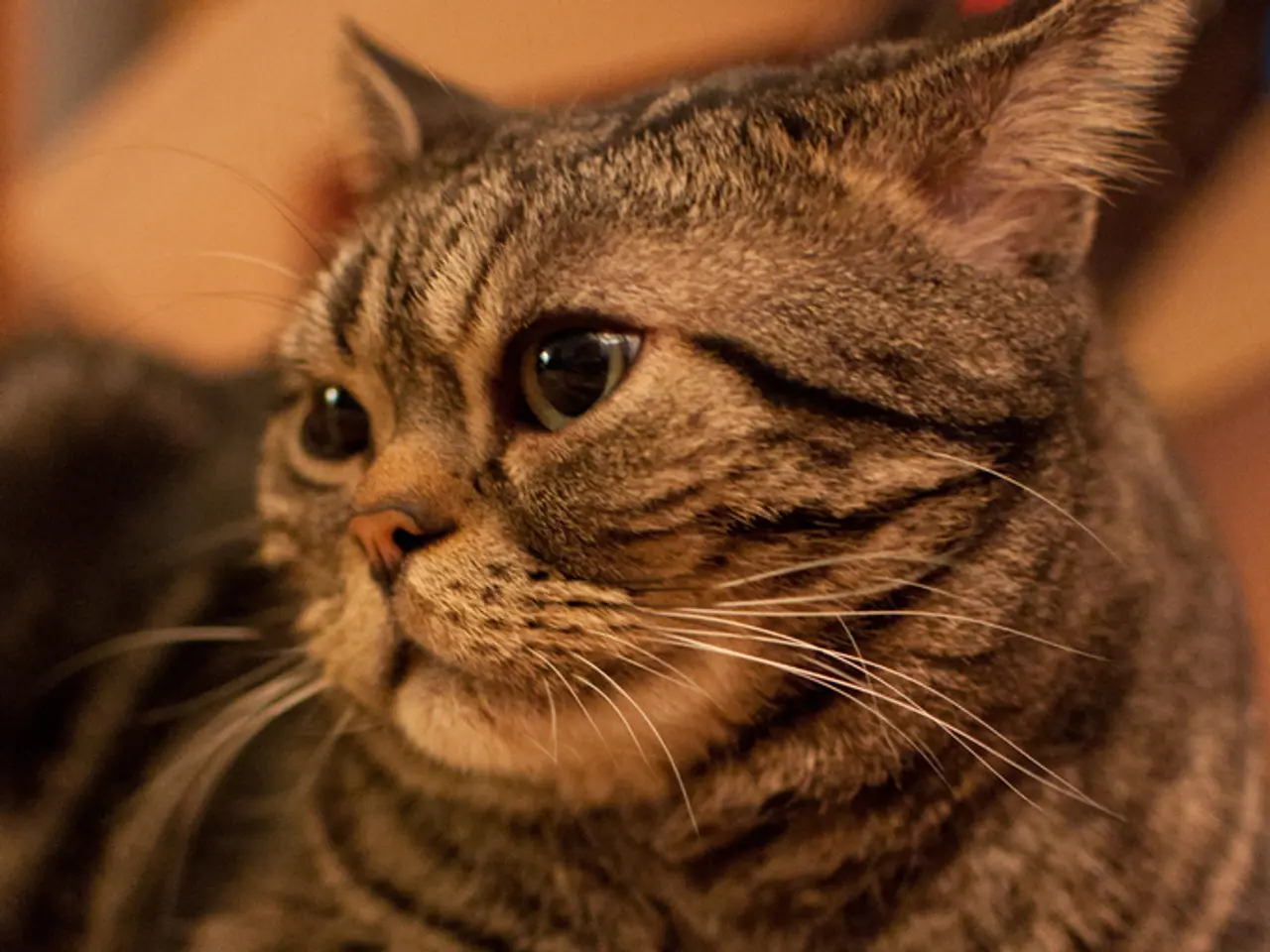Cat Breathing Rapidly: Is This a Reason for Concern?
Cats are known for their calm demeanor, but persistent panting can be a cause for concern. If you notice your cat panting or breathing heavily, it's essential to stay calm, keep your cat comfortable, and take note of any other clinical signs before calling your veterinarian immediately.
In some cases, treatment for a cat panting could involve oxygen therapy, intravenous fluids, or medications to reduce inflammation and treat anemia. However, persistent panting in cats can indicate serious underlying health issues that require veterinary care, especially when accompanied by other symptoms like labored breathing, coughing, lethargy, or distress.
Common serious causes of persistent panting in cats include heart disease, respiratory diseases, pain or stress, heat stroke or overheating, and other underlying illnesses. Heart disease conditions affecting the heart can impair oxygen delivery, leading to panting as the cat struggles to breathe. Respiratory diseases such as asthma, bronchitis, infections, upper respiratory tract inflammation, or inhaled foreign objects can cause difficulty breathing and panting. Pain from injuries, chronic conditions like arthritis or dental trauma, or severe stress and anxiety can also cause a cat to pant. Though rare, extreme heat can cause panting to help cool off, and other underlying illnesses such as parasitic infections, tumors in the respiratory tract, or systemic illnesses can also be culprits.
Panting is abnormal in cats, and unlike dogs, it generally signals distress or disease. Early intervention can be life-saving for a cat experiencing respiratory distress or heart and lung issues. If you're unsure about your cat's panting, it is recommended to call the vet. A veterinarian may use chest X-rays, blood tests, or oxygen saturation checks to diagnose the cause of a cat's panting. Prompt treatment is crucial for effective management of conditions like feline asthma, heart failure, or infectious diseases.
In summary, persistent panting in cats may signal serious conditions like heart or respiratory disease, pain, severe stress, or overheating and should prompt prompt veterinary consultation. Immediate vet care is especially important if panting is accompanied by coughing, wheezing, lethargy, or changes in behavior. Always remember, your cat's health is in your hands, and prompt action can make all the difference.
Read also:
- Stem cells potentially enhancing joint wellness and flexibility during aging process?
- Obtaining Ozempic: Secure and Legal Methods to Purchase Ozempic Online in 2025
- Home-Based Methods and Natural Remedies for Managing Atherosclerosis
- Exploring the Natural Path: My Transition into Skincare with Cannabis Ingredients






